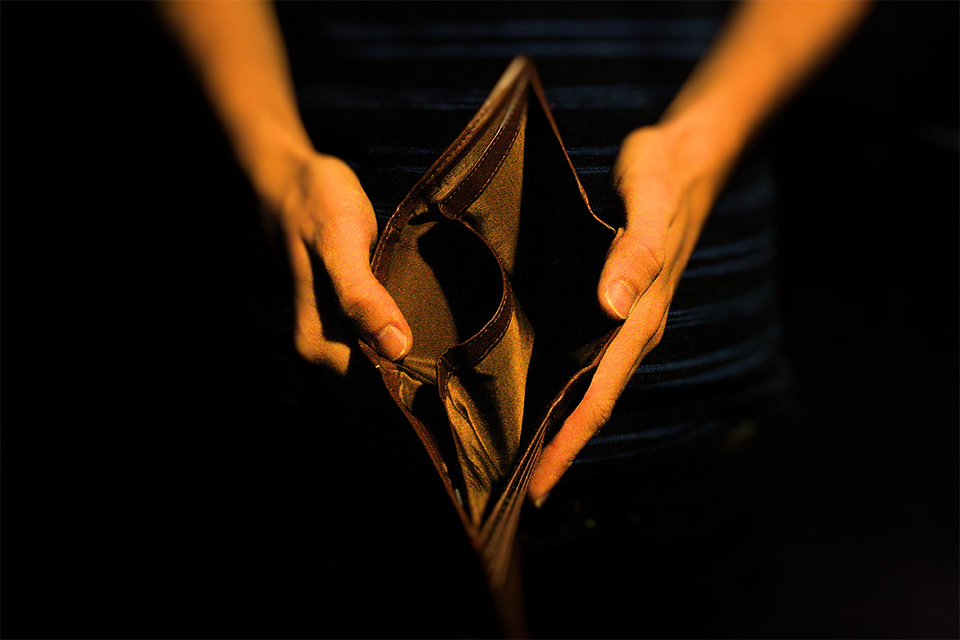Managing your finances properly is so important when you’re starting a new business; you’ll only have a limited amount of capital to cover all of your overheads until you start earning some money. If you spend all of it too quickly, you’re going to struggle to survive long enough to become profitable. Managing your spending properly and trying to keep staff costs as low as possible is important but even if you’re doing everything right, there’s always the chance that you’re going to be hit with a financial curveball. It might be an unexpected cost or a sudden dip in sales. Whatever it is, you need to be able to deal with those financial disasters so they don’t kill your business before it’s even off the ground. Here’s how you can handle financial disasters when you’re starting a new business.
Don’t Invest All Of Your Money
Financing a business is tough and you’ll have to use a lot of your savings to get things going. But it’s important that you don’t put all of your eggs in one basket. Regardless of how well you manage your finances, there’s always the chance that your business could fail so you need to be realistic. If you invest every single penny that you have in your business and it doesn’t take off, you’ll be in a very bad financial position afterward. When you’re saving up to start a business, keep a little aside so you can still get by if the business doesn’t work out. If you don’t want to go through the growing pains of starting your own business and you want a solid investment, why not think about owning a franchise?
If you need further investment, you can turn to other funding options rather than using all of your money. Suppose you choose to pitch to investors for additional finance. In that case, you will need seed funding pitch deck examples to help you put together your pitch to ensure maximum support and success. this isn’t suitable for all new businesses. Still, it is an option for getting you up and running without risking everything you have.
Keep An Emergency Cash Buffer
Unexpected costs are one of the main reasons that businesses run into financial trouble so you need to be prepared for them. If you get hit with an unexpected cost and you have to spend a big chunk of your cash, you won’t have enough to cover all of your normal business costs. That’s why you should always keep an emergency cash buffer separate from the rest of your capital so you can pay off those bills without causing yourself any financial problems.
Use Analytics
The best way to avoid a financial disaster is to predict it before it happens and take steps to deal with it. That isn’t always possible but in a lot of cases, it is. As long as you’re doing regular audits of your financial situation and creating forecasts, you should be able to anticipate any problems. There are a lot of different types of data analytics that you can use to help you forecast business activities. You can generate sales forecasts which will help you to plan your finances in the future and you can identify any inefficiencies in the business that might be costing you money. You can also see whether your sales are affected by the seasons, which is something that a lot of new businesses fail to account, so they end up in trouble during the slow season. If you’re not making good use of business analytics, you’re far more likely to be hit with a financial disaster out of nowhere.
Separate Personal And Business Finances
One of the most common mistakes that owners make when starting a new business is not separating their business and personal finances and it can be devastating. The problem is, it’s not usually huge purchases that cause the issues. Say, for example, you go out to buy some office supplies. While you’re there, you pick up a couple of things that you need for home and put it all on the business credit card. It doesn’t seem like a big deal but if you start doing it all of the time, you’ll become careless and you can quickly lose track of your finances. You might not realize that you’re heading toward a financial disaster because your business spending is fine, but you’re losing a lot of money on the side by spending company money on personal items.
That’s why it’s so important that you always have separate business and personal accounts to use and make sure that there’s no crossover between the two. It’ll be far easier to know what’s going on with your finances that way.
Get The Right Insurance
There are a lot of different types of business insurance to protect you from all sorts of different problems. You need property insurance on your office building to protect you from theft and fire, you need liability insurance to protect you against lawsuits from customers, and workers compensation insurance to cover costs if one of your employees is injured. When you’re first starting out, you might think that you can save yourself a bit of money by skipping out on the insurance but that’s never a good idea. If you find yourself in a bad situation and you don’t have insurance coverage to get you out of it, you’ll probably end up spending all of your money and you may have to shut the business down entirely.
If you follow this set of financial rules when you’re starting a new business, you can avoid any disasters.






